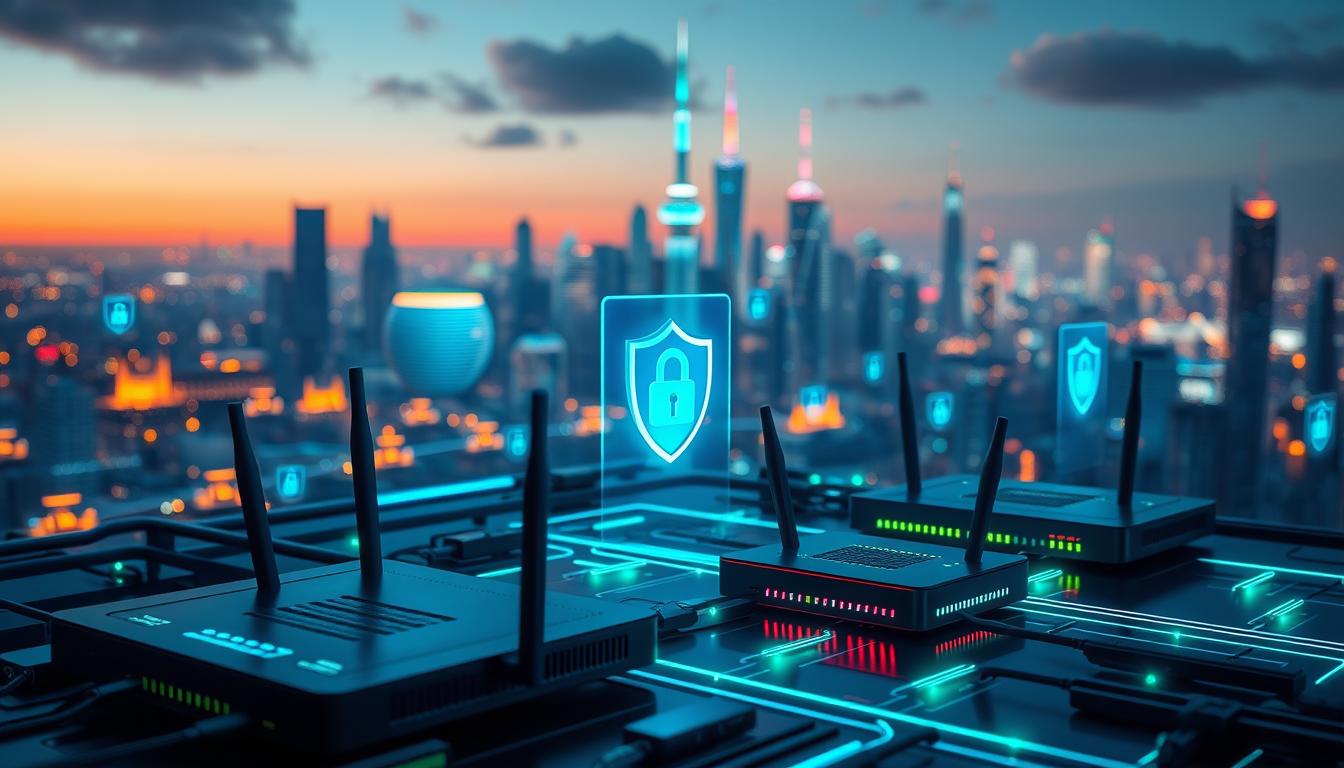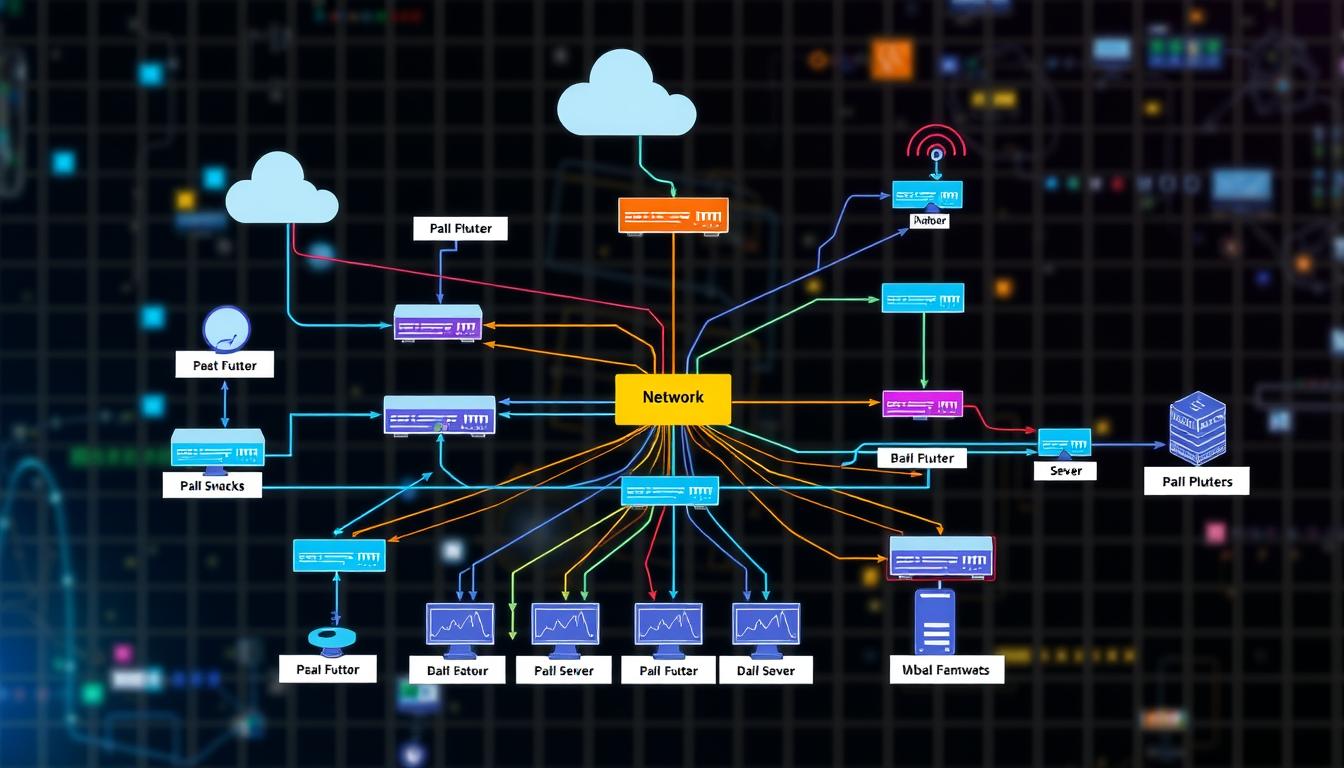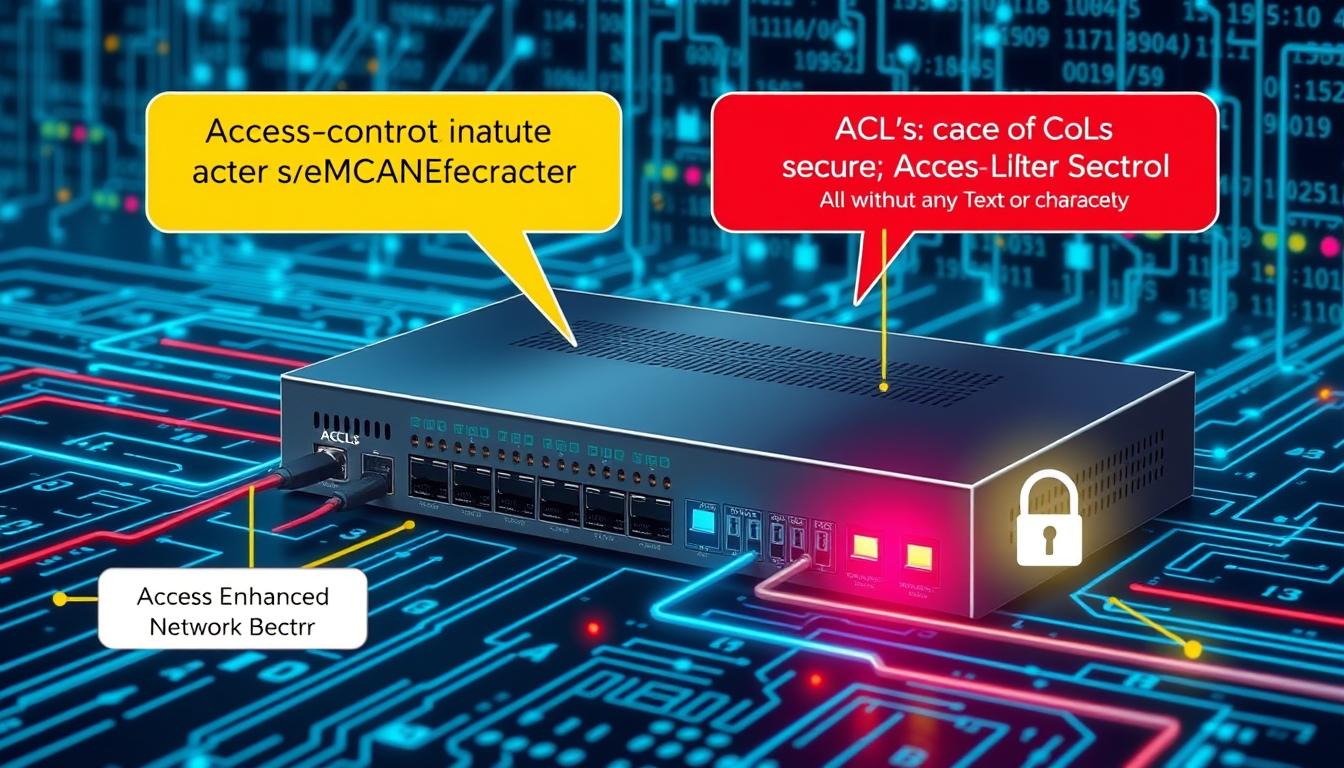Are you a CCNA student struggling to find enough time in your day to study and prepare for your exams? Trust me, I’ve been there. As a seasoned CCNA expert, I understand the challenges that come with balancing coursework, lab practice, and personal commitments. That’s why I’m here to share some game-changing time management strategies that will help you make the most of your study time and achieve success in your CCNA journey.
When it comes to studying for the CCNA, time is of the essence. With a vast amount of material to cover and complex concepts to grasp, it’s crucial to have a solid plan in place. In this article, I’ll be sharing my tried-and-true techniques that will not only help you manage your time effectively but also enhance your productivity and retention of key concepts. Whether you’re a full-time student or juggling multiple responsibilities, these strategies will empower you to stay focused, stay organized, and ultimately ace your CCNA exams. So, let’s dive in and discover the secrets to mastering time management as a CCNA student.
Create a Study Schedule
Having a well-planned study schedule is key to managing your time effectively as a CCNA student. Here are some tips to help you create a study schedule that works for you:
1. Assess your available time: Take a realistic look at your daily and weekly commitments. Evaluate how much time you can dedicate to studying for your CCNA exams. Whether you have a part-time job or other responsibilities, understanding your available time will help you allocate it wisely.
2. Set specific study goals: Determine what you want to achieve within a given time period. Are you aiming to complete a certain chapter or topic? Do you want to master a specific skill? By setting clear study goals, you can structure your schedule accordingly and stay focused on your objectives.
3. Prioritize your study time: Identify the times of day when you are most alert and productive. If you’re a morning person, consider scheduling your study sessions in the morning when you can concentrate better. Prioritizing your study time during your peak hours will help you make the most of your study sessions.
4. Break it down: Instead of trying to study for long hours at a stretch, break your study time into smaller, manageable chunks. Research suggests that studying in shorter sessions with regular breaks enhances retention and concentration. Aim for 25-30 minute study intervals followed by 5-10 minute breaks.
5. Use a study planner or app: Utilize tools like study planners, apps, or online calendars to help you stay organized and accountable. These tools can assist you in scheduling your study sessions, setting reminders, and tracking your progress. Find a study planner or app that aligns with your preferences and make it a part of your study routine.
Remember, creating a study schedule is not a one-time effort. It’s important to regularly reassess and adjust your schedule based on your progress and changing commitments. By following a well-structured study plan, you’ll be able to effectively manage your time and make steady progress towards achieving your CCNA goals.
Prioritize Your Tasks
When it comes to studying for your CCNA exams, it’s essential to prioritize your tasks efficiently. Here are some strategies that can help you make the most of your study time:
- Identify the most important concepts: Start by identifying the key concepts that need the most attention and focus. This will help you allocate your time and energy accordingly. Prioritize the topics that you find most challenging or that have a higher weightage in the exams.
- Create a study schedule: Once you have identified the important topics, create a study schedule that allocates specific time slots for each concept. Be realistic about how much time you can dedicate to studying each day, and ensure that you have enough time to cover all the necessary material. Setting a study schedule helps you stay on track and ensures that you give equal attention to all the topics.
- Break down larger tasks: Sometimes, certain topics can seem overwhelming due to their complexity or length. In such cases, it is helpful to break them down into smaller, more manageable tasks. This approach will make it easier for you to tackle each sub-topic one at a time, reducing stress and increasing productivity.
- Use effective study techniques: Different study techniques work for different people. Experiment with different methods and find what works best for you. Some popular techniques include summarizing information in your own words, creating flashcards, teaching the material to someone else, or using mnemonic devices. Choose the techniques that help you understand and retain information effectively.
Remember, prioritizing your tasks doesn’t mean neglecting other subjects or topics. It simply involves allocating your time and energy in a way that ensures you focus on the most important areas first. By effectively prioritizing your tasks, you’ll be able to maximize your study time and increase your chances of success in your CCNA journey.
With my own CCNA experience, I have found that prioritizing tasks is crucial for efficient and effective studying. By identifying the most important concepts, creating a study schedule, breaking down larger tasks, and using effective study techniques, you can make the most of your study time and achieve your CCNA goals.
Avoid Procrastination
When it comes to studying for CCNA exams, one of the biggest challenges that students face is procrastination. It’s tempting to put off studying and convince ourselves that we’ll have plenty of time later. However, procrastination can be detrimental to our success and lead to unnecessary stress and cramming at the last minute. To avoid falling into this trap, I’ve found some effective strategies to help CCNA students manage their time better and stay on track.
- Break it down: The thought of studying for hours on end can be overwhelming and discouraging. Instead, break your study time into smaller, manageable chunks. For example, aim to study for 30 minutes to an hour, then take a short break. Breaking it down into smaller increments makes it easier to get started and maintain focus.
- Create a study routine: Establishing a consistent study routine can help eliminate decision fatigue and make studying a habit. Find a time of day when you’re most alert and productive, and dedicate that time solely to studying. By making it a part of your daily routine, you’re more likely to stick to it and avoid the temptation to procrastinate.
- Eliminate distractions: Put away your phone, close unnecessary browser tabs, and find a quiet place where you can concentrate. Distractions can easily derail your focus and prolong your study time. Removing them from your environment will help you stay on task and make the most of your study time.
- Set goals and deadlines: Setting specific study goals and deadlines can provide a sense of urgency and motivation. Break down your study material into smaller topics or chapters and set milestones to work towards. This allows you to track your progress and gives you a sense of accomplishment as you reach each goal.
- Utilize productivity techniques: There are various productivity techniques that can help you manage your time effectively. Two popular ones are the Pomodoro Technique and the Eisenhower Matrix. The Pomodoro Technique involves working in bursts of focused time, typically 25 minutes, followed by short breaks. The Eisenhower Matrix helps you prioritize tasks based on their urgency and importance, allowing you to allocate your time wisely.
Break Down Your Study Material
When studying for the CCNA exam, it’s essential to break down your study material into smaller, more manageable parts. This approach helps to reduce overwhelm and makes it easier to focus on specific topics. Here are some strategies that can help:
- Organize your study material: Start by organizing your study material into different sections or topics. This can be done by using textbooks, online resources, or study guides. Breaking down the material into categories makes it easier to approach each section individually.
- Create a study plan: Once you have organized your study material, create a study plan. Identify the topics you need to cover and allocate specific time slots for each. Be realistic with your time allocation and consider your other commitments. Creating a study plan helps you stay organized and ensures you cover all the necessary topics.
- Set goals for each study session: Before starting each study session, set specific goals. Determine what you want to accomplish during that session. It could be completing a specific chapter, understanding a particular concept, or practicing a set number of practice questions. Breaking down your study sessions into smaller, achievable goals keeps you motivated and focused.
- Review and revise regularly: As you progress through your study material, make sure to regularly review and revise what you have learned. This helps reinforce your understanding and retention of key concepts. Allocate time for review sessions in your study plan and make it a habit to revisit previously covered material.
Remember, breaking down your study material into smaller parts allows you to approach each topic with more clarity and focus. It also helps in managing your time effectively by allowing you to allocate specific time slots for each topic. By following these strategies, you can enhance your understanding and retention, and ultimately succeed in your CCNA journey.
Utilize Productivity Techniques
When it comes to managing time effectively as a CCNA student, it’s important to utilize productivity techniques that can help maximize your study time and minimize distractions. Here are some strategies that have been proven to enhance productivity:
- The Pomodoro Technique: This popular productivity technique involves breaking your study time into short, focused bursts followed by brief breaks. The idea is to work on a specific task for a set period of time, typically 25 minutes (known as a “pomodoro”), and then take a short break of 5 minutes. After completing four pomodoros, take a longer break of 15-30 minutes. This technique helps maintain focus and prevents burnout.
- The Eisenhower Matrix: This method, also known as the “urgent-important matrix,” helps prioritize tasks based on their urgency and importance. Divide your study tasks into four categories: urgent and important, important but not urgent, urgent but not important, and neither urgent nor important. This way, you can allocate your time and energy to the tasks that have the greatest impact on your CCNA exam preparation.
- Time Blocking: This technique involves scheduling specific blocks of time for different tasks or subjects. By assigning dedicated time slots for studying specific topics or completing certain tasks, you can ensure that you focus solely on the task at hand without distractions. This also helps create a sense of routine and structure in your study schedule.
- Task Prioritization: Prioritizing tasks is crucial for effective time management. Identify the most important concepts or topics that you need to study and allocate more time to them. By focusing on these key areas first, you can ensure that you have a solid understanding of the core concepts before moving on to less critical material.
By incorporating these productivity techniques into your study routine, you can improve your focus, increase your efficiency, and make the most of your study time. Remember, time management is not about working harder, but about working smarter. So, experiment with these strategies and find the ones that work best for you.
Take Regular Breaks
When it comes to time management, taking regular breaks is an essential strategy that every CCNA student should incorporate into their study routine. Contrary to popular belief, taking breaks actually improves productivity and helps to maintain focus. Here’s why:
- Prevents burnout: Studying for long periods of time without breaks can lead to mental exhaustion and burnout. Our brains need regular rest to process and retain information effectively. Taking short breaks allows us to recharge and come back to our study sessions with renewed energy and focus.
- Increases retention: Studies have shown that taking breaks during learning significantly improves information retention. When we take breaks, our brains have time to consolidate and process the information we have absorbed. This helps to strengthen our memory and improve long-term retention.
- Boosts creativity: Taking breaks gives our minds the opportunity to wander and explore new ideas. It stimulates creativity and helps us approach tasks with fresh perspectives. This can be particularly helpful when studying complex concepts in the CCNA curriculum, as it allows us to think critically and find innovative solutions to challenges.
So, how do I incorporate regular breaks into my study schedule effectively? Here are a few tips:
- Use the Pomodoro Technique: The Pomodoro Technique is a popular time management method that involves setting a timer for 25 minutes of uninterrupted work followed by a 5-minute break. After completing four cycles of work, take a longer break of around 15-30 minutes. This technique helps maintain focus during study sessions and ensures regular breaks are taken.
- Engage in physical activity: During your breaks, engage in physical activities that help you relax and rejuvenate. Take a short walk, do some stretching exercises, or practice deep breathing. Physical activity not only improves blood circulation but also helps to clear the mind and reduce stress levels.
- Avoid distractions: Be cautious of how you spend your break time. Avoid activities that can easily turn into distractions, such as checking social media or watching videos. Instead, opt for activities that promote relaxation and mental rejuvenation.
By incorporating regular breaks into your study routine, you can boost productivity, improve information retention, and refresh your mind. Remember to use time management techniques like the Pomodoro Technique to ensure you have a structured approach to taking breaks and optimizing your study sessions.
Set Realistic Goals
Setting realistic goals is crucial for effective time management as a CCNA student. By breaking down your larger objectives into smaller, manageable tasks, you’ll create a clear roadmap for your studies. Here are a few tips to help you set realistic goals:
- Be specific: Rather than setting a vague goal like “study for CCNA,” be more specific. For example, set a goal to complete a certain number of chapters or modules within a specific timeframe. This specificity helps you stay focused and gives you a clear target to work towards.
- Prioritize tasks: Not all tasks are created equal, and some may require more time and effort than others. By prioritizing your tasks, you ensure that you allocate your time and energy to the most important ones. Use techniques like the Eisenhower Matrix, which categorizes tasks into four quadrants based on urgency and importance. This approach helps you identify high-priority tasks that require immediate attention.
- Break tasks into smaller steps: Breaking down larger tasks into smaller, manageable steps makes them feel less overwhelming. Instead of tackling a whole chapter at once, consider dividing it into sections or subsections. This not only makes it easier to approach but also gives you a sense of progress as you complete each step.
- Set achievable deadlines: Setting unrealistic deadlines can lead to unnecessary stress and burnout. Be honest with yourself and assess how much time you’ll need for each task. Consider factors like your existing commitments, study pace, and personal circumstances. Setting achievable deadlines ensures that you don’t overwhelm yourself and helps you maintain a healthy work-life balance.
Remember, the key to setting realistic goals is understanding your capabilities and limitations. Tailor your goals to your specific needs and adjust them as necessary. By setting realistic goals, you’ll stay motivated, organized, and on track to achieve success in your CCNA studies.
Remove Distractions
When it comes to studying for the CCNA exam, removing distractions is crucial. Distractions can derail your focus and hinder your progress. Here are a few strategies that I find helpful in minimizing distractions:
- Find a quiet and dedicated study space: Creating a designated study area can help you mentally transition into study mode. Make sure your study space is free from noise and other potential distractions.
- Turn off notifications: The constant pinging of notifications from your phone or computer can be tempting and distracting. I recommend turning off notifications or putting your devices on silent mode during study sessions.
- Manage your digital distractions: While technology can be a valuable study tool, it can also lead to distractions. Be mindful of the websites and apps that tend to pull you away from your studies. Consider installing a website blocker or using browser extensions that limit your access to distracting sites during study hours.
- Minimize interruptions: Let your friends, family, and roommates know about your study schedule so they can avoid interrupting you during those times. You can also use a “Do Not Disturb” sign or headphones to visually signal that you’re focused and should not be disturbed.
- Break up tasks strategically: Long study sessions can increase the likelihood of getting bored or frustrated, which can lead to distractions. Instead, break up your study sessions into manageable chunks of time and take short breaks in between.
Remember, effective time management is crucial for CCNA students. It’s important to remove distractions and create an environment that fosters focus and productivity. By implementing these strategies, you can create a distraction-free study space and make the most of your study sessions.
Utilize Technology Tools
As a CCNA student, I understand the importance of utilizing technology tools to enhance time management and study efficiency. With the advancements in technology, there are numerous tools available that can greatly streamline your study process. Here are some key technology tools that you can incorporate into your study routine:
- Study Apps: There are several study apps specifically designed for CCNA students that can help you stay organized and focused. These apps often include features such as flashcards, practice quizzes, and study reminders. Some popular study apps for CCNA students include Quizlet, Anki, and Cisco Packet Tracer.
- Time Management Apps: Time management apps can be a game-changer when it comes to managing your study schedule. These apps can help you plan your tasks, set reminders, and track your progress. Some popular time management apps that I recommend are Todoist, Trello, and Asana. These tools are not only designed to keep you organized but also provide a visual representation of your tasks and deadlines.
- Digital Note-Taking Tools: Digital note-taking tools can make your study sessions more efficient and organized. Applications like Evernote and OneNote allow you to take notes, highlight important information, and easily search for specific topics. With these tools, you can quickly find the information you need without wasting time flipping through pages of physical notes.
- Online Learning Platforms: Online learning platforms such as LinkedIn Learning, Udemy, and Coursera provide valuable resources and courses for CCNA students. These platforms offer video lectures, practice exams, and interactive learning materials that can supplement your study efforts. By utilizing these platforms, you can access a wealth of knowledge and enhance your understanding of CCNA concepts.
By incorporating these technology tools into your study routine, you can greatly enhance your time management and study efficiency. These tools not only provide convenience but also offer valuable resources and features that can support your learning journey. So, take advantage of the technology available to you and make the most of your CCNA study sessions.
Seek Support and Accountability
As a CCNA student, it’s important to remember that you don’t have to go through the journey alone. Seeking support and establishing accountability can be game-changers in your time management efforts. Here’s how you can do it:
- Join Study Groups: Joining study groups is a great way to connect with fellow CCNA students who are going through the same challenges as you. It provides an opportunity to share knowledge, clarify doubts, and gain new perspectives. Additionally, studying in a group setting can help you stay motivated and accountable.
- Find a Study Buddy: Having a study buddy can be incredibly beneficial. You can work together to set goals, create study schedules, and hold each other accountable. It’s a great way to stay focused and committed to your study goals.
- Leverage Online Communities: Online communities and forums dedicated to CCNA can be a valuable source of support and accountability. Share your progress, ask questions, and engage with other students who are pursuing the same certification. By connecting with like-minded individuals, you can find inspiration and encouragement to stay on track.
- Consider a Mentor: A mentor can provide guidance, advice, and a fresh perspective on your CCNA journey. They can help you navigate challenges, provide insights on time management, and offer valuable industry knowledge. Look for experienced professionals or alumni who are willing to mentor you.
- Use Productivity Tools: Utilize productivity tools to keep you accountable and track your progress. There are numerous apps and software available that can help you manage your time, set goals, and stay organized. Find the ones that work best for you and incorporate them into your time management routine.
Remember, seeking support and accountability doesn’t mean relying on others to do the work for you. It’s about creating a network of individuals who can help you stay motivated, provide guidance, and hold you accountable. By leveraging the power of community and utilizing productivity tools, you can maximize your time management efforts as a CCNA student.
Conclusion
Effective time management is crucial for CCNA students to succeed in their studies. By implementing productivity techniques such as the Pomodoro Technique, the Eisenhower Matrix, time blocking, and task prioritization, students can maintain focus, create a routine, and allocate dedicated time for specific subjects or tasks. Taking regular breaks is also important to prevent burnout, increase retention, and boost creativity. Utilizing the Pomodoro Technique, engaging in physical activity, and avoiding distractions during breaks can help students recharge and stay motivated. Setting realistic goals is another key aspect of effective time management. Breaking tasks into smaller steps, setting realistic deadlines, and tracking progress are essential for staying on track and achieving success. Seeking support and accountability through study groups, study buddies, online communities, and mentors can provide valuable guidance and motivation. Lastly, leveraging productivity tools to track progress and stay organized is essential for maintaining efficiency. By implementing these strategies and utilizing available resources, CCNA students can optimize their time management skills and achieve their study goals.










